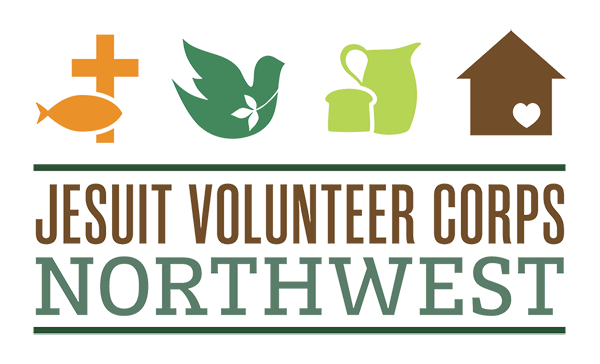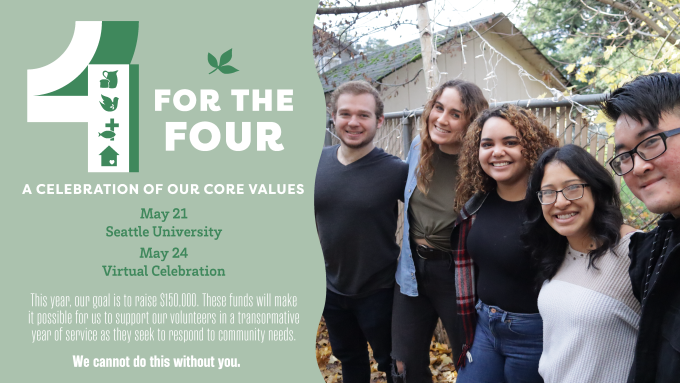Corbin Weaver and James Wykowski (Wenatchee, WA, ’13-’14) serve as Community Outreach Specialists at Columbia Valley Community Health. Together, they have enrolled nearly 1000 people into insurance coverage under the Affordable Care Act (ACA) since November. In this post, Corbin and James reflect on what healthy futures in the context of their service means.
Corbin (C): I have enjoyed the opportunity to walk with patients through a confusing and frequently scary change in the history of healthcare in this country. The message of the ACA has been pretty doom and gloom in the media recently. However, every day I interact with people whose lives are positively impacted by the law. Many have not received healthcare for years because of their financial situation, others had little options of how to take care of their medical needs and were faced with hard compromises regarding their well-being. This changed for many when they became insured in the new system. It’s uplifting to be able to tell a person who has never had insurance that they can now go to the doctor and they do not have to worry about being bankrupted just to take care of their medical needs.
James (J): The biggest shift caused by the ACA is that nation-wide millions of individuals have the opportunity to access free or low-cost health insurance. While I’m incredibly proud of the work we’ve done, it has been and continues to be a long road to health equity. Despite the ACA’s efforts to increase access to health insurance, our patients still face a number of challenges. Not all are eligible based on their immigration status. The application itself requires advanced financial and technological literacy. Patients picking a health plan who have never had health insurance before have to suddenly understand what a premium, deductible and co-pay are, and are then expected to make an educated decision of what plan fits them best. There have been days, weeks, and even months where it feels like there’s a new barrier around every corner.
C: One major challenge of the enrollment process has been fighting perceptions and myths floating around about the changes in the law. There is a lot of fear of the changes that ACA brings, and many misunderstandings. It can be hard to break through those barriers. What is more, sometimes systematic and structural barriers of the application process are frustrating. The system expects people to be able to use computers and the internet. However, this simply is not reality for many of the patients we see. Sometimes the system and transparency seems to break down when it comes to the population living at the margins in society.
J: At the same time, this is a historic moment in history and I’m honored to be a part of it. I’m continually inspired by the tenacity of patients who come back in week after week to see if their application has finally gone through. We’ve had some major ‘wins’ along the way—patients whose lives will be dramatically changed by the ACA—but we’re also beginning to see more and more patients coming in for check-ups and preventative screenings, and that’s really the gratifying piece. Our healthcare system is badly broken. As someone who wants to spend the rest of my life working in this field, it’s encouraging to see the beginnings of change.
C: What I am taking away most from this experience is the importance of being present and caring about the patient sitting in front of you as a person. It is really easy to get caught up in the “numbers game” of enrollment. For example there are “x” amount of uninsured in Wenatchee and we need to see “y” amount everyday to be successful in our enrollment efforts. But in reality, every day real people with real stories and real concerns walk through the doors of the clinic. Those patients deserve care and attention. Many aspects of the whole process are out of my control, and in many ways I sometimes cannot tangibly do a lot for people other than help them fill out an application. However, intangibly, I feel I am there for support and to ease tensions and fears as much as I am there to make sure “x” amount of people in the valley get healthcare by the end of open enrollment. I could not do that if I did not see the people and situations that sit with me at my desk every day.
J: Through it all I’ve learned that change takes patience and time. My service this year barely scratches the surface. Sometimes, being an agent for change means digging deep even when you feel like you can’t give anymore. I’m applying to medical school, and while I’d love to spend the rest of my life working on the clinical side of medicine never having to worry about health insurance again, I know that the experiences I’ve had this year will stick with me forever. Each person we serve is more than just a percentage of the poverty level and a list of diagnoses, and they deserve to be treated with dignity and respect.




